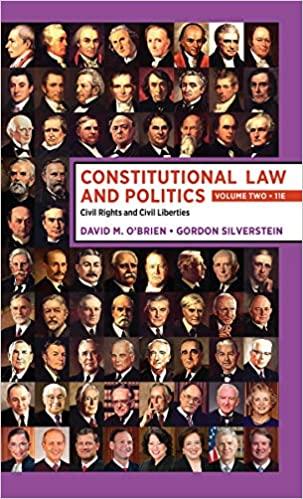Question
Examine the following scenario and answer the questions that follow: X is the most senior son of B, a deceased traditional leader of one of
Examine the following scenario and answer the questions that follow:
X is the most senior son of B, a deceased traditional leader of one of the prominent kingdoms in South Africa. He hopes to succeed his father as a traditional leader and head of the relevant traditional authority in terms of legislation and customs presently practised by the jural community. The royal family has identified him (X) as the person qualified for appointment to those roles and has presented his particulars to the government for that purpose in terms of section 11 of the Traditional Leadership and Governance Framework Act 41 of 2003. X has an elder sister Y who also aspires to succeed her father as the traditional leader and head of the said traditional authority. She believes that she has a stronger right than X to succeed her father (B), and that her feminine gender is no bar to her assumption of that role. However, Y's bid has not been supported by the royal family and consequently has not been recommended by the traditional authority in terms of the Act. Y has launched a high court application to be declared the rightful successor to the position left vacant by her father's (B's) death. The traditional authority is supporting X in his defence against Y's High Court application. Critically evaluate X's and Y's chances of success for appointment in the position of traditional leader and head of the traditional authority.
(i) Taking into account the historical traditions and the culture surrounding appointments to traditional leadership in South Africa, what considerations do you think would have persuaded the traditional authority to support X rather than Y in their recommendations to the government, notwithstanding Y's age and the provisions of section 11 of the Traditional Leadership and Governance Framework Act, 41 of 2003 and case law. Provide reasons. (10)
(ii) If the traditional authority has not amended its past practices for appointing traditional leaders, and no contemporary practices have been adopted in line with the values of the new constitutional order, which version of customary law would it have to apply in its recommendations and give reasons. (10) (iii) If a contemporary practice has emerged among the entire community, mainstreaming compliance with the Bill of Rights in the appointment processes of traditional functionaries, which version of customary law would the traditional authority be obliged to apply in its recommendations and give reasons. (10)
References need to be provided
Step by Step Solution
There are 3 Steps involved in it
Step: 1

Get Instant Access to Expert-Tailored Solutions
See step-by-step solutions with expert insights and AI powered tools for academic success
Step: 2

Step: 3

Ace Your Homework with AI
Get the answers you need in no time with our AI-driven, step-by-step assistance
Get Started


